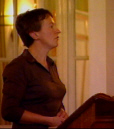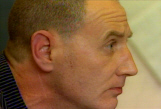The 2nd Annual Miscarriage of Justice Day Meeting
Michael Naughton & Andrew Green
On Saturday 11 October 2003, a meeting was hosted by United Against Injustice (UAI) at the Britannia Adephli Hotel, Liverpool, to mark the 2nd Annual Miscarriage of Justice Day (12 October). UAI is the federation of miscarriage of justice support organisations that includes INNOCENT, MOJO, Merseyside Against Injustice (MAI), Kent Against Injustice (KAI), Falsely Accused Support Organisation (FASO), and South Wales Liberty.
This Report provides a brief outline of the key ideas that were presented by the speakers at the meeting, which was attended by an audience of between 150 and 200 victims of miscarriages of justice, campaigners, academics, lawyers and a range of media representatives. A great deal of the proceedings were filmed by Channel 4 as part of a documentary on Robert Brown’s first year of freedom after his 25 years of wrongful incarceration that is due for release spring 2004. We plan to make the complete meeting proceedings (the full speeches/talks) available online through the various websites of the organisations that comprise or support UAI.
The meeting was opened by Kevin McMahon, a former Merseyside police detective, the chair and founder of Merseyside Against Injustice and the spokesperson for United Against Injustice. He gave a summary of the establishment of UAI and the various organisations that are affiliated. Kevin invited the audience to observe a minutes silence to remember Kevin Callan who died on 5 August 2003. An obituary of Kevin is published on the Innocent web site.
Part way through the proceedings Kevin also read an extract from a poem by Michael Stone called ‘A few well chosen words’ which conveyed the frustration, as well as profoundly damaging effects of wrongful imprisonment upon the innocent. The remainder of the meeting was Chaired by Kiron Read, a lecturer on civil liberties and human rights at Liverpool Law School.
In brief the talks were as follows:
Michael Naughton, a Research Fellow in the Department of Sociology, University of Bristol, spoke on two main themes. First, he gave an overview of his on-going project that attempts to determine the scale of the miscarriage of justice problem in England and Wales. He challenged definitions of miscarriages of justice that focus on successful appeals against conviction following a referral to the Court of Appeal by the Criminal Cases Review Commission (CCRC). This provides a very poor picture of the scale of miscarriages of justice that are currently occurring by excluding the many thousands of wrongful convictions that are routinely overturned each year - 37,000 over the last ten years.
Michael then highlighted a new category of miscarriage of justice that has not previously received any attention – ‘convictions for crimes that never occurred’. Key examples of such cases that have been overturned include Sally Clark who spent three years of a life sentence for the murder of two of her children who actually died of natural causes; Sheila Bowler who served four years of a life sentence for the murder of her aunt, who died of accidental drowning; Patrick Nichols who spent 23 years of wrongful imprisonment for the murder of Gladys Heath, a family friend, who had accidentally fallen down a flight of stairs; and Kevin Callan who served three years for the murder of his four-year-old step-daughter Amanda Allman, who died as a result of accidental falls. Examples of cases in which the victims are currently imprisoned include Nick Tucker who is serving a life sentence for the murder of his wife, Carol, despite the fact that five pathologist reports agree that she died following a road traffic accident; Jong Rhee who is serving a life sentence following the death of his wife in what contesting forensic science evidence holds to have been an accidental guest house fire; Eddie Gilfoyle who is serving a life sentence for the murder of his wife who committed suicide; and Angela Canning who is currently serving a double life sentence for the murder of her two children who were, probably, the tragic victims of ‘cot death’.
Steve Crampton, a retired police inspector, spoke about the specific problems with I.D. Parades as a cause of miscarriages of justice. Of particular concern are ‘seated parades’ which give no sense of the height of suspects and lead to wrongful convictions, as in the case of Sam Cole, who is currently serving a life sentence for a murder he did not commit. Witnesses described the perpetrator of the crime as 5 feet 10 inches tall with a Prestonian accent, and Sam stands at 6 feet 3 and has a broad ‘scouse’ accent. The parade was seated and the requests by the witness for them to stand and to hear them speak were denied. Even more alarming is the universal trend to hold ‘video parades’ to cut down on the costs of conventional parades. Video parades give no hint of the height of the suspect. This will only increase the likelihood of future miscarriages of justice through mistaken identification. Defence solicitors almost always ignore the fact that their clients have agreed to “stand”, not sit, on a parade.
 |
Claire Gilham, Deputy Chair of the Independent Police Complaints Commission (IPCC) that will replace the disgraced Police Complaints Authority (PCA) in April 2004, gave a robust criticism of the PCA, particularly its poor record of prosecutions following complaints of police misconduct. She then went on to give an indication of the ways in which the IPCC will be an advancement of the system of police complaints under the PCA. In particular, Claire promised that the IPCC will ensure people's complaints against the police are properly investigated, using new legal powers that will be far greater powers than the existing police complaints procedures. She also said that no ranks will be beyond the scope of the IPCC. The problem with Claire’s talk was that although she did get across the message of the failure of the PCA and the promise of the IPCC, the court will have to remain out until the IPCC come into force and that promise can be properly assessed.
John Wagstaff, legal advisor to the CCRC, gave a frank account of the limits of the CCRC. Describing the CCRC as the ‘paint on the bow of the supertanker which is the criminal justice system’, he acknowledged Michael Naughton’s contention that all successful appeals should be included as an official acknowledgement of the true number of miscarriages of justice. In consequence, the CCRC is rendered as generally insignificant to the vast majority of miscarriage of justice victims who will successfully overturn their wrongful convictions through routine appeal mechanisms. This does not detract from the importance to those victims of miscarriages of justice that make applications to the CCRC. John reminded such applicants that they should not just submit general applications, but say precisely why they thought themselves wrongly convicted and direct the CCRC where to look for evidence. He gave a particularly useful piece of practical advice: rather that presenting more and more evidence that verifies the defence case, try to find evidence that falsifies the prosecution case. This is the most fruitful route to overturning wrongful criminal convictions.
Jane Hickman, a leading criminal appeal solicitor from Hickman and Rose, and member of the Criminal Appeal Lawyers Association (CALA), recalled that when she started to practice law in the 1970s, the police routinely fitted up suspects, so blatantly that reforms had to be instituted in the 1980s, even by the Tories. Since then the pendulum has swung the other way – Howard was followed by Straw, followed by Blunkett, each worse than what had come before, leading to an ever-increasing demand for results from the police and, inevitably, more miscarriages of justice. Now politicians like Blair say legal aid is a gravy train for lawyers, and the problem is the guilty going free rather than the innocent being wrongly convicted. But you do not need to take rights away from defendants in order to convict the guilty or treat victims and witnesses better. The current Criminal Justice Bill proposes the abolition of a great many safeguards against miscarriages of justice, such as the removal of the right to jury trials if witnesses or jury members are said to be threatened, and admissibility of defendants’ previous criminal records. Another proposal will greatly reduce time and facilities for defence preparation. But already there is an almost 100% correlation between poor legal work and miscarriages of justice. The legal aid system needs to be redesigned as well as adequately funded, so that the defence does its job thoroughly.
Andrew Green, who formerly ran Conviction, and is a co-founder of INNOCENT and UAI, spoke about the role of false witness statements and non-disclosure of evidence as causes of miscarriage of justice. He used the example of Susan May, currently serving a life sentence for the murder of her aunt, to show how witness statement taking by the police has become a tool used by the police to produce misleading evidence. He argued that false witness statements are a major cause of miscarriages of justice, as shown by the cases of trawling for witnesses in alleged institutional sexual abuse cases and claims of overheard cell confessions by prison grasses. To illustrate the problem of non-disclosure, he cited the case of John Brannan and Bernard Murphy, whose convictions for murder were overturned more than ten years after they were first imprisoned, because police had withheld evidence showing that they were telling the truth when they claimed to have acted in self defence. Sadly, John had by then taken his own life. Andrew noted that the current Criminal Justice Bill would only worsen the situation, and proposed the solution that members of campaigns should get together to share their knowledge in order to overturn wrongful convictions. He invited those interested in attending skill-sharing workshops to contact him.
 |
Robert Brown, who really needs no introduction, concluded the meeting by speaking with great passion about the flaws in his own wrongful conviction and the extent to which the entire system of criminal justice is biased in favour of the wealthy – when people talk about poor defence as a cause of miscarriage of justice they need to remember that it is the poor that get a poor defence! Robert also expressed his lack of trust or belief in the IPCC, which, he argued, is a damage limitation exercise that will very much act in exactly the same way as the PCA. He pointed out that no police officers have ever been held to account in any of the high profile miscarriage of justice cases, and that they probably never will. This is because the System looks after its own! When Robert finished speaking he received a spontaneous and prolonged standing ovation.
To close the meeting, Michael Davis, who was one of the wrongly convicted M25 Three, sang two songs about his fight for freedom which he wrote while still a prisoner.